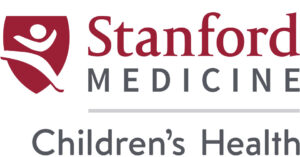Thanks to seed funding from the Brain Inflammation Collaborative, the Stanford Immune Behavioral Health (IBH) Clinic and Research Program will advance data collection for clinical trials in pediatric acute-onset neuropsychiatric syndrome (PANS), a disease characterized by the sudden onset of obsessive-compulsive symptoms or eating restrictions, accompanied by other sudden changes in the child’s behavior. BIC is providing $180,000 in seed funding to be made over three years.
Led by Jennifer Frankovich, MD, MS, clinical professor in pediatric allergy, immunology, and rheumatology, Stanford’s IBH Clinic is the first multi-disciplinary PANS clinic in the world. The goal of its service and research is to identify infections and immune system abnormalities that may affect psychiatric symptoms. The IBH Clinic sees a variety of overlapping comorbidities in its patient population that is also of great interest to BIC’s research objectives in determining how infection driven illness triggers mental health symptoms. Illnesses which they have seen overlap with PANS and sub-acute onset obsessive-compulsive disorder include juvenile arthritis, Crohn’s disease, myalgic encephalomyelitis/chronic fatigue syndrome, postural orthostatic tachycardia syndrome, and Ehlers Danlos Syndrome, to name a few.
The primary stumbling block in advancing care for PANS, and many other related neuroimmune disorders brought on by inflammation, is the lack of randomized placebo-controlled trials. The reason for the paucity of trials is directly related to both the lack of funding and lack of robust infrastructure for clinical trials.
“It is a huge undertaking to create a national clinical trial platform for these invisible diseases. With a platform in place, treatment protocol development will accelerate, and this means faster cures for these suffering patients,” says Dr. Frankovich. “My team and I are grateful to BIC for seed funding that will allow us to start the process of designing trials and applying for funding and/or creating relationships to ensure these trials get done.”
The Brain Inflammation Collaborative is dedicated to advancements in diagnosis, treatment, and prevention of neuroinflammatory illness and understanding the connection between brain inflammation and mental health. “Our goal is to push research forward faster to find discoveries that can improve clinician diagnostic and treatment strategies. We need to better understand how inflammation contributes to mental health symptoms so that patients can get the treatment they deserve,” says Christy Jagdfeld, CEO of the Brain Inflammation Collaborative.
Research conducted at the IBH Clinic will examine potential causes and factors in PANS and related conditions, including molecular pathways; environmental, food, and gut biome triggers; biomarkers; vulnerability factors; autoimmunity; and the role of infection and trauma.
Thank you, Brain Inflammation Collaborative, for your important work in this area, and for supporting the Stanford efforts to bring answers and relief to families facing PANS challenges.


